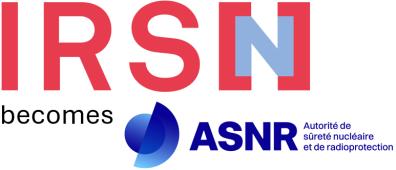The DoReMi network of excellence
The DoReMi network of excellence (Low Dose Research towards Multidisciplinary Integration), launched in January 2010, is dedicated to multidisciplinary research on the effects of low doses of ionising radiation. Co-funded by the European Commission until December 2015, the purpose of DoReMi is to set up the operational conditions for European research in this field, of which the strategic direction is defined by the MELODI governing board.
Context and objectives
The main objective of DoReMi is, as for all networks of excellence, to structure and share research at the European level. DoReMi is actually in charge of setting up the operational organisation of MELODI [link to the MELODI page on this website], an association that brings together many European organisations involved in research on the effects of low doses of ionising radiation, which defines the research strategy over 20 years via the Strategic Research Agenda (SRA). DoReMi will promote the long-term integration of research, i.e. the sharing and complementarity of programmes, capacities and research infrastructures, the specialisation of each partner (new equipment, knowledge transfer...). It will also identify the additional needs both in terms of resources and areas of research in order to successfully complete the SRA. IRSN is a partner of the network with 21 other institutional organisations (as of 2012).
DoReMi also has scientific research objectives, which are included in the SRA. Focused on three themes identified in the SRA, the DoReMi research will feed both the knowledge and the discussion on the effects of low doses of ionising radiation.
This research is structured according to a Transitional Research Agenda (TRA) published in September 2010, and completed by an update published in September 2011, which defines the research priorities for the network of excellence and which will feed the SRA.
Organisation
DoReMi is split into seven work packages:
-
Coordination and management (WP1): ensures the administration and financial management of the project by maintaining a synergy between the partners; as a member of the DoReMi "management board", IRSN participates in all WP1 meetings organised by STUK (Finland), the coordinating organisation of DoReMi.
-
MELODI structuring (WP2): helps in the development of the platform through the long-term promotion of research integration at the European level; IRSN coordinates this WP and is responsible, in particular, for coordinating the TRA (Transitional Research Agenda) drafting, an agenda defined over 6 years, which ultimately feeds the SRA;
-
Education and training (WP3): organises training sessions for qualified scientists wishing to specialise;
-
The development of research infrastructure (WP4): selects and compiles the major infrastructures (installations, tools, databases, cohorts, protocols) of the network members and make them accessible to all;
-
Shape of dose-response curves (WP5): improves knowledge of the cancer risks related to low doses in humans; in this context IRSN is in charge of a sub-workgroup dealing with the issue of internal contamination resulting from the incorporation of low quantities of radionuclides in the body.
-
Individual radio-sensitivity (WP6): identifies the causes of and genetic factors that influence different levels of sensitivity between individuals to the carcinogenic effects of low doses;
-
Non-cancer effects of ionising radiation (WP7): assesses the international radiation protection system for the stochastic effects of low doses, in regard to the deterministic effects of radiation. IRSN coordinates this WP. In this context IRSN has organised two consensus conferences with the purpose of making an inventory of current knowledge and identifying themes for future research: the first concerned radiation-induced vascular effects (December 2010) and the second radiation-induced lens opacities (September 2011). Furthermore, IRSN is involved in pilot research projects on the effects of low doses on epithelial vascular cells, on neurogenesis and on the risks of eye lens opacity in interventional cardiologists.
Work Packages 2, 3 and 4 have a direct link to the development and support of the European MELODI platform. Work Packages 5, 6 and 7 are concerned with scientific research itself.
Moreover, in the context of its education and promotion of research functions, the DoReMi network of excellence organises training courses for researchers and qualified students interested in a scientific career in disciplines related to radiation protection.
